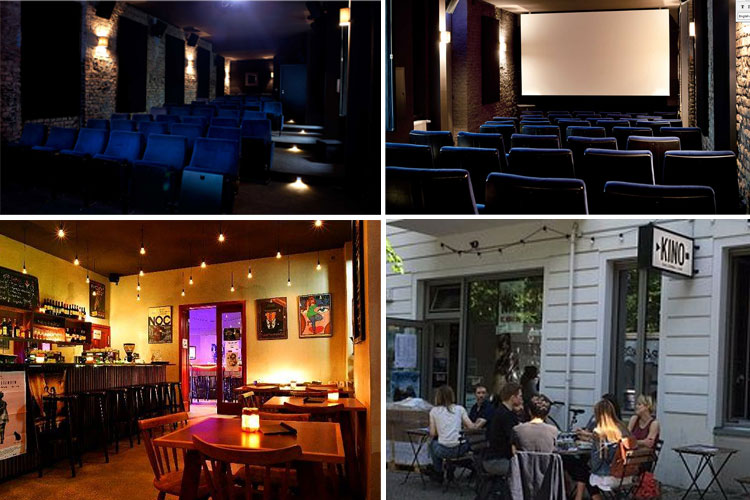Covid impact on EUROVOD VoD services
EUROVOD CONTRIBUTION
by Silvia Cibien
EUROVOD
  EuroVoD, the association of European VoD platforms, is producing a detailed report that will be ready by September about Covid impact on its members. EuroVoD, the association of European VoD platforms, is producing a detailed report that will be ready by September about Covid impact on its members.
In the meantime, since April we have been collecting feedback and data about the Covid impact on our business and on future perspectives.
First outcomes
The consumer appetite for online film has become clear in the coronavirus crisis but a distinction needs to be made between the dominating US tech giants and the independent European sector.
Needless to say, the pandemic accelerated the increase in online traffic and in consumption of content.
If we compare it with March 2019, paid transactions increased fourfold on average, from +15% to +1,000% (so x 10 times), depending of course on the type of offer, company, territories etc.
The increase in online consumption is good news not only because smaller platforms have always struggled to find a sustainable business model in a very competitive and highly concentrated digital economy, but also because our platforms have an average of 78% EU films in their aggregated catalogues, and most of our platforms have a revenue share business model, with an average of 50% for the rights holders.
There is growing recognition that online viewing can increase access to new, diverse and challenging work, whose theatrical release might have been extremely limited.
I should like to recall that EuroVoD platforms are not just technical commodities, but are strongly editorialized offers with different identities, and among our members there are also cinema owners, who have survived the crisis thanks to the VOD offer and day-and date cinema/ VoD releases, like for instance TriArt Film in Sweden or Kino Pasaka / www.zmonescinema.lt in Lithuania. Some of our members are also distributors or broadcasters, like OutTV, so the Covid crisis has touched them differently, especially when VoD is not the main source of income.
EuroVoD players had to face a sudden and massive overload in traffic and usage. As a consequence, our members had to rethink their mode of operation and make important technical investments in order to meet the high demand and to respond to the high expectations coming from cultural players (rights holders, cinemas, festivals…).
Most of our platforms have received urgent requests from film festivals and cinemas to find alternatives to the public venues that were closed down. Rights holders were very cooperative in lowering the price of films and offering promotions to the audience - on average, in March 2020 85% of our members took B2C promotional actions, as can be seen on our website:
https://www.eurovod.org/post/list-of-actions-from-eurovod-members-in-the-context-of-covid-19-restrictive-measures.
This period has shown the capacity of fruitful cooperation in the chain of rights, especially among local actors, with initiatives that can be repeated in the future. Therefore, EuroVoD platforms are working with and wish to strengthen relationships with cinemas and festivals. The lockdown has offered examples of mutual support in the common interest of European film and culture.
The evidence from members is that people experiment more online (particularly SVOD) with their choice of film than they do in cinemas. Diversity needs diverse channels. What we saw is a massive interest in arthouse, classics and European films, taking in an indie or a specialist service alongside the bigger names. This is promising for the sector.
They did not go to the FAANGs to get to their audience but contacted local and European online distributors, because of our capacity to reach targeted audiences that are looking for alternatives to mainstream content, and are sensitive to arthouse, European and quality content channeled by European festivals, cinemas and distributors.
Perspectives
In our opinion, the most important thing is that the Covid crisis does not block the flow of releases or at least, that the smaller distributors, cinemas and festivals have other options to ensure some revenue. European editorialized platforms can play a very important role in the chain of value, and also politically, bringing European culture to its citizens during this crisis and beyond.
European production numbers have been increasing dramatically over the last 15 years, rising even during an economic crash. Much of that increase has come from public funding (if France is taken out of the equation, more than 40% of a film’s production cost comes from public funding). Meanwhile the number of screens and cinemas has been largely static. We encourage movie theatres not only to reopen, but even to multiply, because the lack of cinemas in Europe is a serious problem for the whole sector and for society in general. Nevertheless, nowadays especially, with the present situation of the pandemic still affecting us, European films can only reach audiences through online channels.
Until now, platforms have often been perceived as a disrupting problem, instead of integrating this new distribution tool as part of the solutions and the evolution of the industry, especially when we think about the diversity of channels and editorialized offers in Europe. Now this process has accelerated, underlining the weaknesses of the system where US tech giants are reaching the general audience as never before. We have a lot to learn from their audience oriented approach, nevertheless we need diversity of channels, approaches and content and we need to build a working ecosystem based on cooperation and collaboration, not protectionism.
European platforms can become the tool that enables the continuity of the European audiovisual industry and we have to thank the European Commission that has been helping European VOD SME’s platforms to grow and take risks for around 10 years now.
There is clearly potential for sustainable growth, especially in areas such as AVOD, as well as SVOD. This market is growing and will continue to develop, and that growth should not be left to FAANGs only. Europe needs to support R&D (research and experimental development) in these areas.
Moreover, VOD offers the best hope for exporting European cultural diversity. International relationships are being built and can help remedy the longstanding weaknesses of European film export.
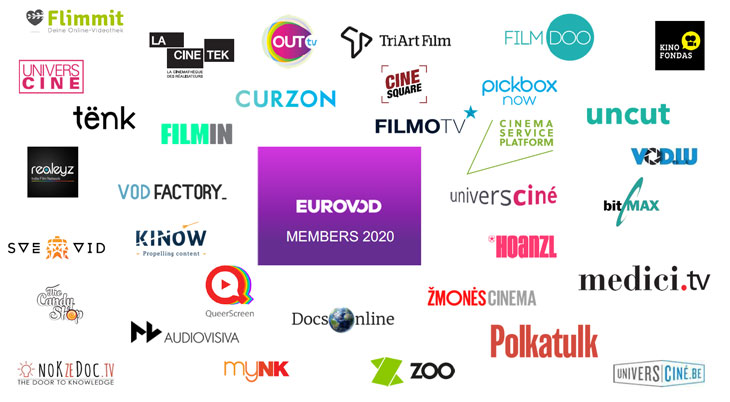
|




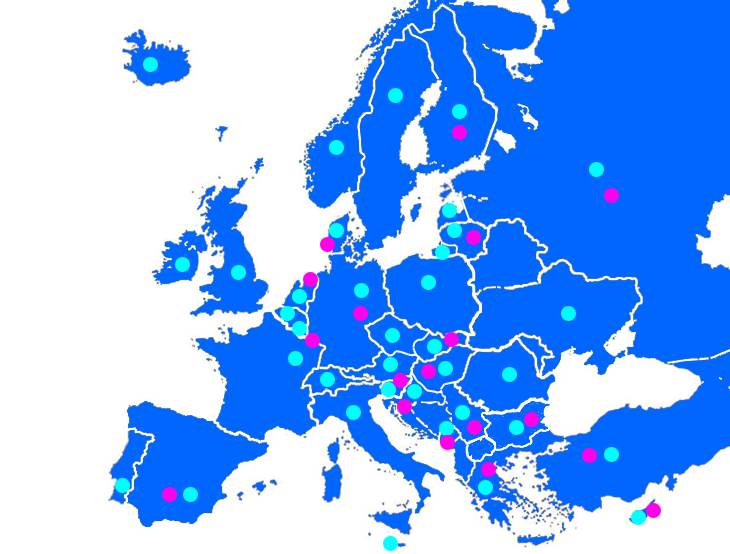
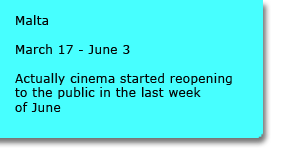



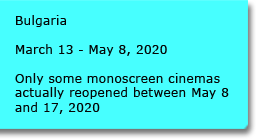











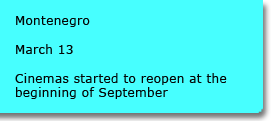






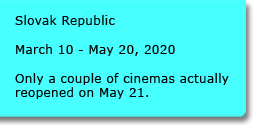
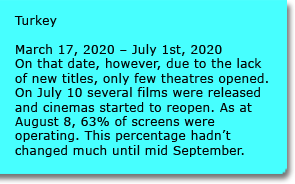


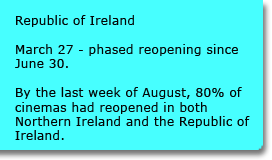




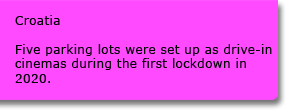

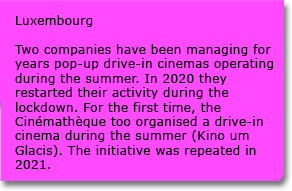

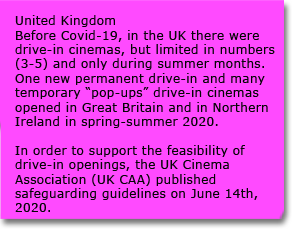
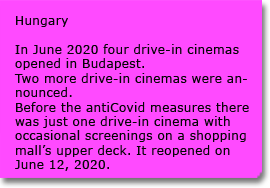
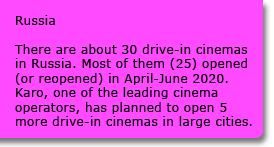

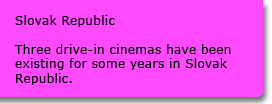


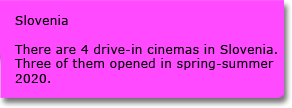
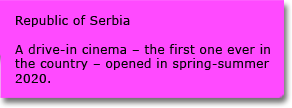
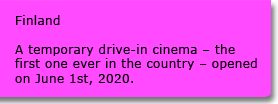

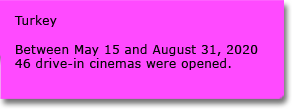
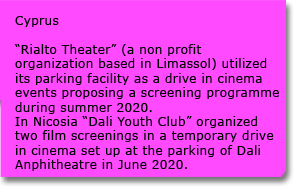
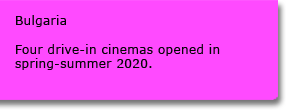
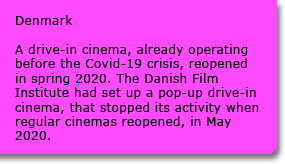
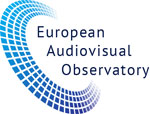 While investigating cinema-going in the time of the pandemic, MEDIA Salles is also offering a view on the other aspects of the cinema industry, thanks to the collaboration of other organizations and especially of the
While investigating cinema-going in the time of the pandemic, MEDIA Salles is also offering a view on the other aspects of the cinema industry, thanks to the collaboration of other organizations and especially of the 
 EuroVoD, the association of European VoD platforms, is producing a detailed report that will be ready by September about Covid impact on its members.
EuroVoD, the association of European VoD platforms, is producing a detailed report that will be ready by September about Covid impact on its members.
